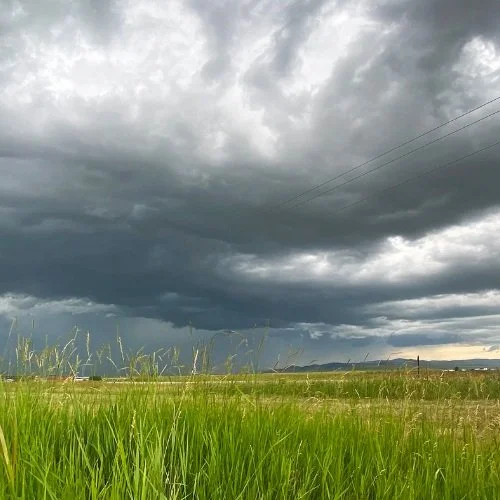The Meanings of May
/ Tracy HovdeBy Tracy Hovde — Last Updated May 1, 2024
The month of May brings to mind, for me, many wonderful things -
May Day and Mother’s Day, planting seeds in freshly tilled dirt, the scent of lilacs blooming, the return of the hummingbirds to my feeders, and the absolute joy of our herd of Scottish Highland cattle when we send them out to graze on pastures of bright green grass for the first time after a winter of dry hay.
All of these things speak to me of beginnings - full of hope, possibilities, and potential.


The word “may” has roots in the ancient imagery of Maia. In Roman mythology she was the goddess of fertility. In Greek mythology Maia is also a goddess, the daughter of Atlas and mother of Hermes, her name literally meaning “mother, good mother, nurse, midwife”. She also was considered the goddess of growth, after whom the month of May was named.
When used as a verb, the word “may” is filled with feminine energy and seed-like potential.


It is rooted in the Old English word “mæg”, of Germanic origin, meaning “to have power”.
According to the Cambridge Dictionary, the verb “may” is used to express possibility; ask or give permission, or introduce a wish or hope.

The Buddhist meditation practice known as Metta calls on the deepest meanings, the seedlike potential, and the maternal energy of the word “may”. Maybe that is why it is so powerful. The practice of Metta, also known as lovingkindness meditation, brings forth feelings of compassion, connection, gratitude, peace, and joy. To practice, simply sit in a comfortable position and repeat the phrases aloud or silently. You could even sing them if you wish.
We are now midway through the month of May. I offer you my own Metta prayer, from my heart to yours.

Plant a seed this spring. Try something new!
Tracy has a background in dance, bodywork, aromatherapy, martial arts, and personal training. After a dance injury led her to yoga for physical healing, she found that her yoga practice not only supported her body, but it also changed her perspective of the world and her connection to it. For her, yoga engenders peace and clarity, both on and off the mat, and gives her a way to balance her energetic anatomy. Inspired to share her perspectives with others, she completed her 200-hour training with Devanadi Yoga, 500-hour training with Green Lotus, and teaches workshops, classes, and trainings for Green Lotus.































